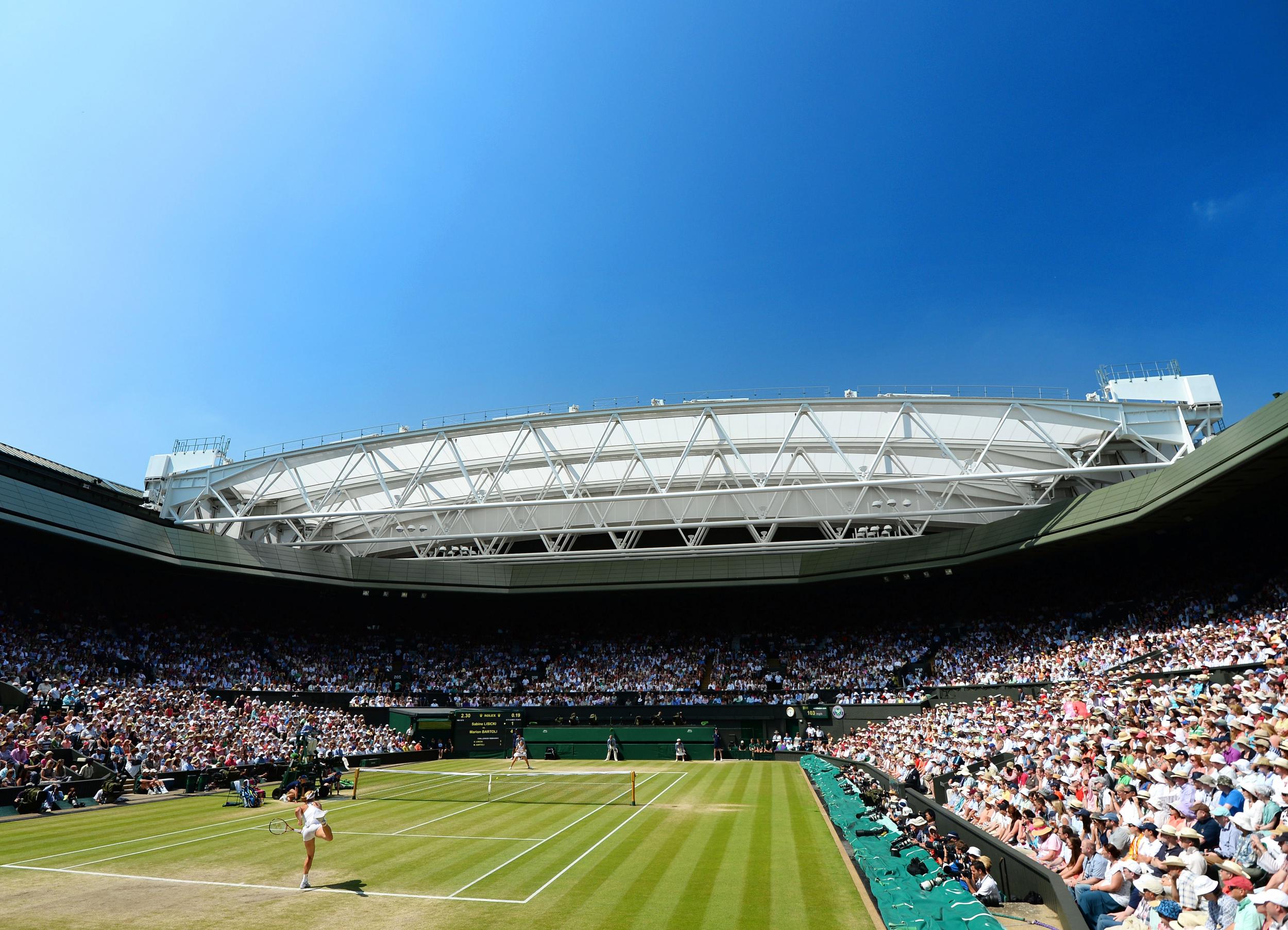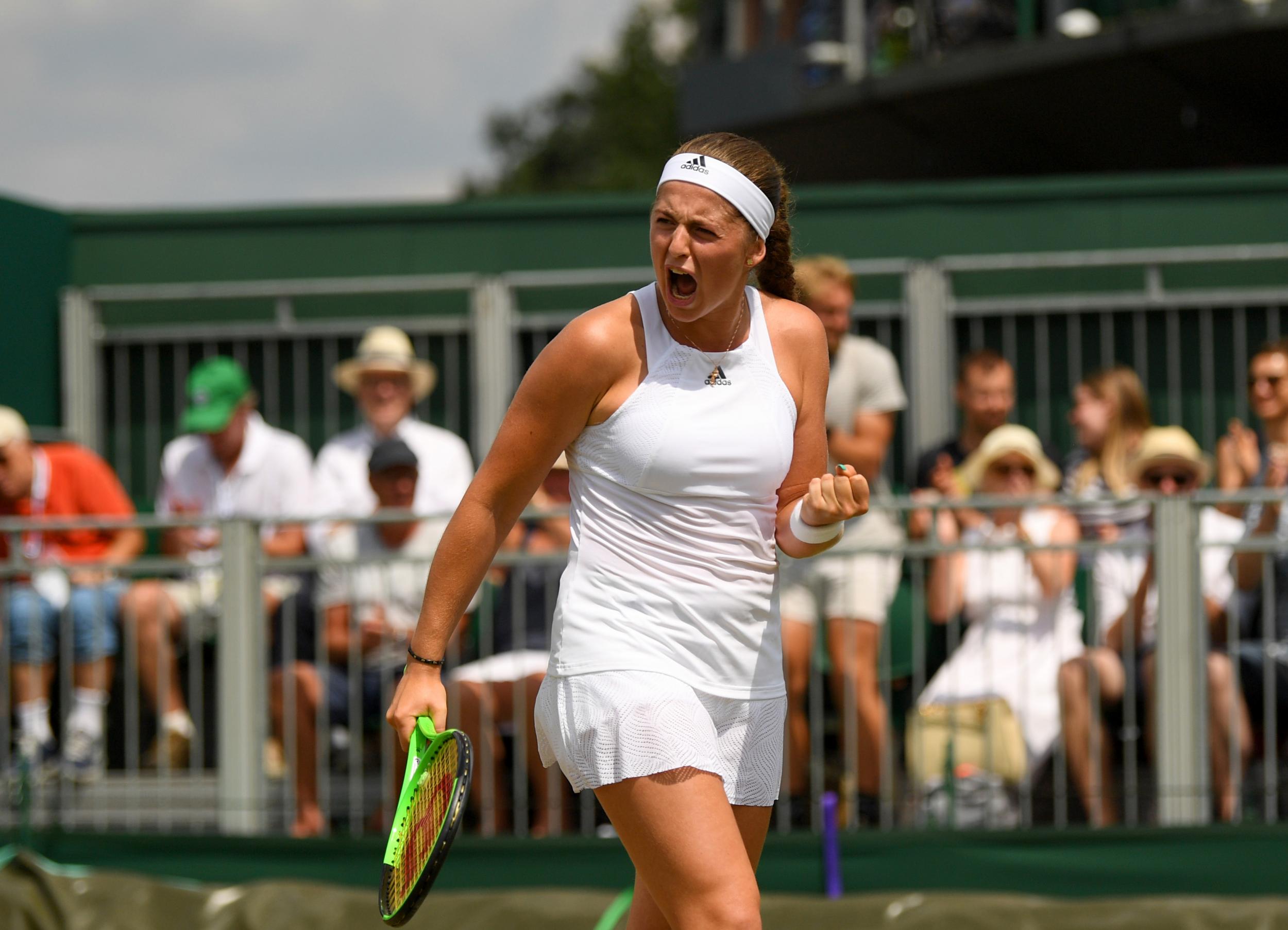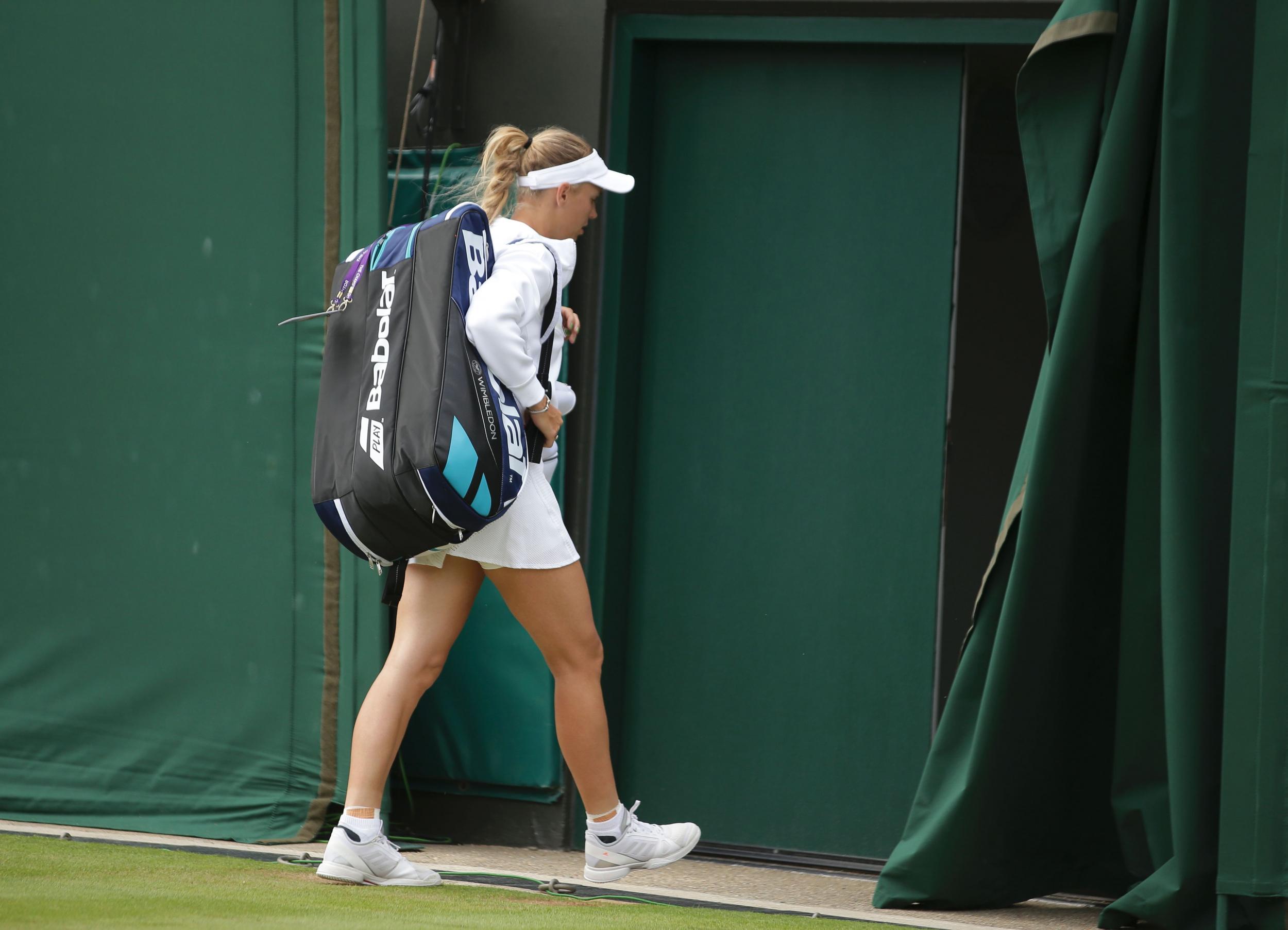Wimbledon 2017: Andy Murray and Angelique Kerber criticise scheduling amid accusations of sexism
The World No 1 Kerber was scheduled to play 2015 finalist Garbine Muguruza on No 2 Court, while French Open champion Jelena Ostapenko was relegated to an outside court

Your support helps us to tell the story
From reproductive rights to climate change to Big Tech, The Independent is on the ground when the story is developing. Whether it's investigating the financials of Elon Musk's pro-Trump PAC or producing our latest documentary, 'The A Word', which shines a light on the American women fighting for reproductive rights, we know how important it is to parse out the facts from the messaging.
At such a critical moment in US history, we need reporters on the ground. Your donation allows us to keep sending journalists to speak to both sides of the story.
The Independent is trusted by Americans across the entire political spectrum. And unlike many other quality news outlets, we choose not to lock Americans out of our reporting and analysis with paywalls. We believe quality journalism should be available to everyone, paid for by those who can afford it.
Your support makes all the difference.Wimbledon faced yet more accusations of sexist scheduling yesterday as stars at the very top of the women’s and men’s sport once again turned on the All England Club.
Top seed and world number one Angelique Kerber sensationally crashed out at the hands of 2015 finalist Garbine Muguruza but did so in front of a modest crowd on No 2 Court, as tournament organisers appeared to favour male players on the showcourts.
“To be honest, I was really surprised that I was playing on No 2 Court,” said two-time Grand Slam champion Kerber after a three set defeat to Muguruza — her second successive match away from the spotlight. “I think we both played a good match which was at a very high level. And I was actually really looking forward to playing on one of the two big courts.
“I mean, what can I say? This is the schedule and it is not my decision at the end of the day. It is a decision made my others. At the end I have to take the court I get scheduled on. But of course I was surprised.”
It appears the German’s concerns hold some weight. In the opening seven days of play, 14 matches on Centre Court have been from the men's singles draw while only eight have come from the women's. And no male top seed has played outside Centre and Court One this century.
Her thoughts were echoed by the men’s World No 1, Andy Murray, who acknowledged that the scheduling was weighted in favour of male players.

“I don't think anyone's suggesting [the scheduling] is fair. I'm not suggesting that it is,” he said after his straight sets win over Benoit Paire on Centre Court. “We need to find a way of allowing for an equal split of the men's and women's matches across the tournament rather than just looking at one day.
“If there's better matches on the women's side than the men's side, you can flip it. If there's better matches on the men's side, then that has to go first, as well.”
Jelena Ostapenko, who beat Elena Svitolina after being relegated to Court 12, was another to express her surprise at being scheduled to play on one of Wimbledon’s smaller courts. Exactly one month ago, the 20-year-old was playing in the French Open final in front of 14,840 spectators on Court Philippe Chatrier. Yesterday, she ground out a 6-3 7-6(6) win against Svitolina in front of little over one thousand.
“I think I deserve to play on a better court than No 12 Court,” Ostapenko later said.
“Elina is the World No 4 so I think our match was a very interesting match for people to watch. I don't like when I play and nobody's watching the match, or only a very few people. It's not fun. So I thought we would play on a bigger court.”

Caroline Wozniacki, who criticised the scheduling earlier in the week, added to the criticism by claiming Wimbledon was the least equal of the four Grand Slam tournaments.
“This is something that we have talked about at Wimbledon for the last 10 years. It's been the same for 10 years straight,” she said after her defeat to Coco Vandeweghe, on No 3 Court.
“I think the other Grand Slams are more equal, positioning of men's and women's matches, whereas here there's always two men's and one women's on Centre Court. Most days, as well, there's more men's matches on Court 1, too.”

But Richard Lewis, the chief executive of All England Club, yesterday insisted that the scheduling was not bias in favour of male players. Instead, he said, scheduling decisions simply reflected what the spectators want to see.
“I would not say it was favouritism, I would say it is taking the marquee matches,” he said. “It is not about male or female, in the end it is about which matches you feel the public and broadcasters most want to see.”
Murray suggested after his win that Wimbledon should look at staging more than three matches a day on the showcourts, to ensure that female players were given an equal chance of playing on the larger courts. “It would be much better if there was four matches,” he said. “And then you have the two men's and the two women's, obviously.”
But Lewis said Wimbledon crowds would struggle to make the earlier start that this would require.
“We view these things from time to time. It doesn’t work for us,” he added. “Whether it will work in the future at any stage I'm not sure. The start time of 1pm, already you see fans struggling to get into Court One and Centre and that's not just corporate hospitality.
“People travel from long and large distances and they want to use off-peak fares.”
This is not the first sexism row to hit this year’s tournament. Last week, Victoria Azarenka — returning to the sport since giving birth in December — complained that the last minute scheduling of her match had left her hanging around Wimbledon all day and unable to properly schedule childcare.
And on the first day of The Championships, five-time Wimbledon champion Venus Williams was less than impressed to be asked a question about her neon pink bra during her post-match press conference.